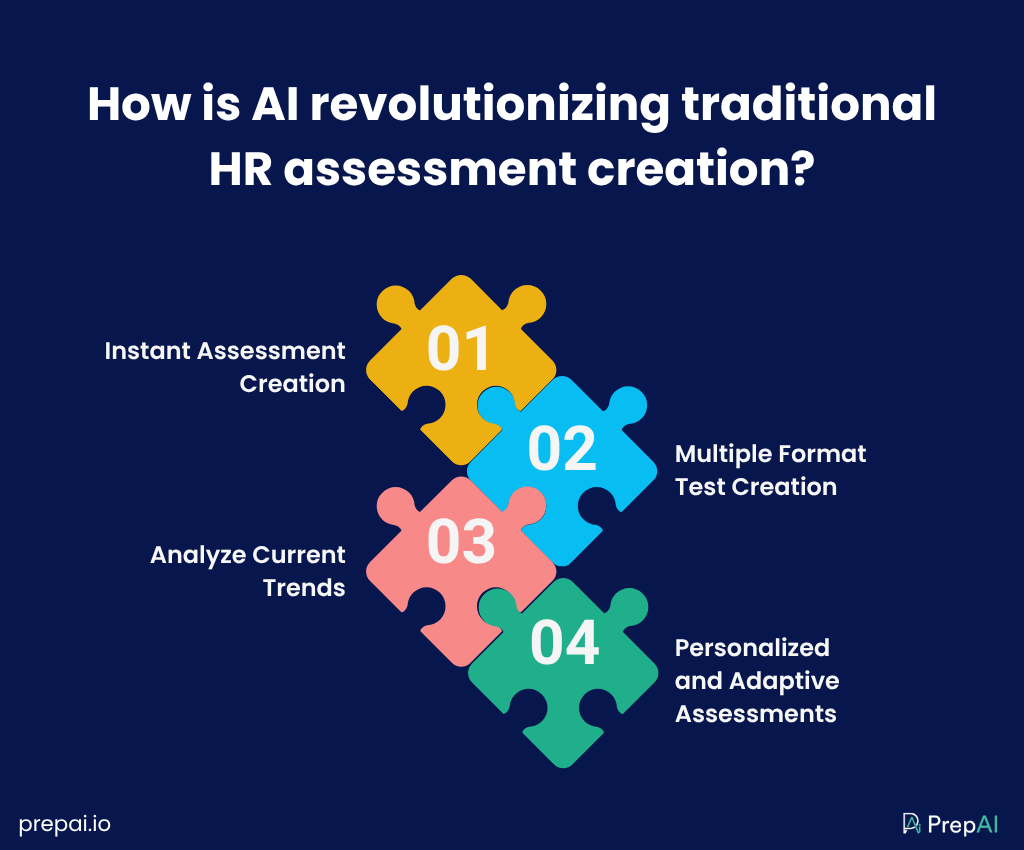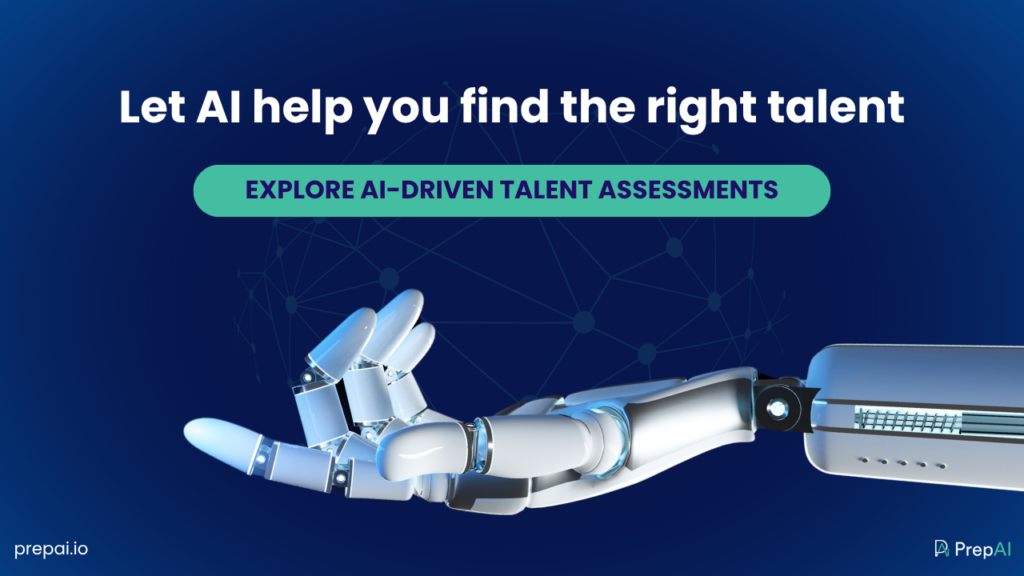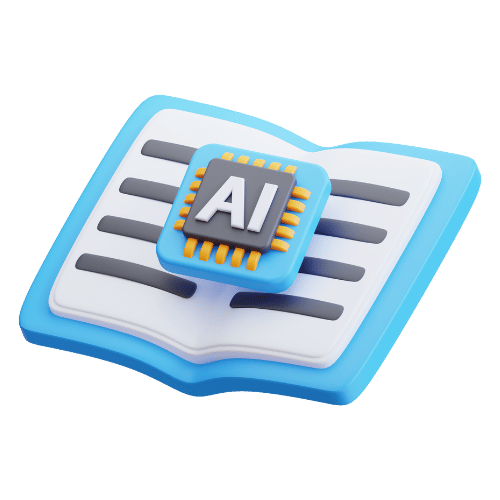HR assessments are the talent assessments used for systematic evaluations by the organization to determine a candidate's suitability for a role. It helps in understanding the skills, abilities, or personality of the candidate. By focusing on such assessments, HR teams can make informed decisions wisely. Let’s understand how AI is replacing traditional HR assessments.
According to McKinsey, 60% of businesses will use AI to manage their talent. This simply means that AI is no longer optional; it is mandatory. Using AI assessment tools like PrepAI, HR operations can become more efficient. AI is also redefining the work parameters by figuring out innovative ways to improve HR tasks, including assessment creation, performance management, employee engagement, onboarding, and talent acquisition.
AI in HR has many noteworthy advantages, ranging from increasing employee engagement to automating the candidate screening process. Moreover, it is also changing the process of generating assessments and testing candidates for different roles. With AI talent assessment tools, HR managers can analyze the skills, abilities, and potential of the candidates. It will also aid them in making informed decisions about the candidates by identifying whether the candidates will stay in the organization for the long term or not. The use of AI in recruitment is leading to a shift of HR tasks to high-value activities. Resume screening, identifying patterns, and boosting employee engagement are some of the benefits AI offers. If considering a wider picture, AI can also create assessments to ease the hiring process. HR can generate assessments like skill-based, competency-based, aptitude, leadership assessments, and more. Thus, it can ensure that the best candidate will get into the organization.
How is AI revolutionizing traditional HR assessment creation?
Traditional HR talent assessments cannot simplify the recruitment and talent assessment tasks. Manually hiring and generating assessments takes a lot of time, and most importantly, it does not provide customization. HR can shift to smart hiring solutions by integrating AI for everyday tasks. With AI, assessment creation becomes easy, efficient, and engaging for candidates. AI can empower HR professionals with:

Instant Assessment Creation
HR assessments can be effectively created by AI platforms like PrepAI. These tools can generate assessments in multiple ways and for different subjects. For example, if HR needs to hire a technical person like a software developer or web developer, HR simply needs to select the subjects for which they want to create assessments. It is also possible they can just add a prompt with related job description details in the tool, and then it will generate an assessment for the candidate.
Analyze Current Trends
These AI tools are capable of analyzing current trends and have specific industry knowledge, which allows these tools to create tests that are unique and align with the needs of the organization. It creates cognitive learning assessments that show applicants’ approaches and how much they are prepared for obstacles in the real world by testing not only memory but also comprehension, application, and flexibility. The tools like PrepAI generate these tests by taking into account an organization’s changing demands and long-term goals, and they go beyond simply verifying knowledge.
Multiple Format Test Creation
To widely assess the technical and soft skills of the candidates, the AI platforms, like PrepAI, can create multiple-format tests that are
MCQs
Choosing this format for testing helps in understanding the core knowledge, conceptual clarity, and product knowledge of the candidate. This can also be used to identify specific skills of the candidates relevant to the job description.
Descriptive Questions
When HR creates descriptive questions, it helps assess candidates’ skills, experience, and personality. The AI talent assessment tool can produce these questions to identify communication skills, analytical thinking, or understanding of their depth of knowledge.
Scenario-Based Question
The tools like PrepAI can generate HR talent assessments for problem-solving ability and analyzing practical application of the knowledge. This is an excellent choice when HR is looking for leadership roles, client-facing roles, and strategic thinking.
Technical Assessments
The tech changes within time, and traditional investments cannot help in analyzing the current tech skills of the candidates. Choosing AI for tech assessment generation, HR can effectively analyze real-world programming skills, logical thinking, and coding proficiency of the technical engineers or developers.
Competency-Based Questions
It is an effective way to evaluate candidates, particularly during interviews. These assessments aid in evaluating a candidate’s aptitudes, conduct, and skills in relation to the job specifications. These inquiries can forecast future performance in a role by concentrating on prior experiences.
Skill-Based Assessments
Skill-based assessments can show how confident a candidate is in their abilities and how well they understand their strengths and weaknesses. Tools like PrepAI can help HR analyze candidates’ functional skills like sales pitch quality, leadership skills, and more. Thus, it directly evaluates job readiness in operational or administrative roles of the candidates.
Personalized and Adaptive Assessments
AI in recruitment is no longer optional; it’s mandatory because it can automate tasks like a pro and save HR managers time in this dynamic landscape. When HR has tools like PrepAI, they can generate difficult and easy assessments in minutes. With these tools, HR can
Dynamic Difficulty Adjustment
The AI tools generate tests on the basis of the job description and experience. HR can easily adjust the level of difficulty of the assessments, like harder or easier, depending on real-time performance.
Follow-Up Questioning
With AI, HR can dive deeper into concepts by asking follow-up questions of the candidate on a certain topic. The traditional assessments may not ask follow-up questions on topics that ideally make the candidates best for the position. The use of AI can push deeper in order to test high-order thinking, which gives recruiters detailed insights into not just what a candidate knows, but how they think.
Customized Feedback
When AI is integrated, it can deliver instant and insightful feedback to both candidates and recruiters. It also provides candidates with areas for improvement, transparency, and a boost to candidate experience. This makes the assessment interactive and personalized while also boosting candidate engagement.
Role-Specific Assessments
AI has the power to personalize the assessments according to the role the organization is looking for. It has the ability to generate target skill assessments; for example, if HR wants to hire a software developer, AI can generate coding challenges or debugging scenarios. Similarly, in the case of non-technical hiring, such as a sales manager, AI can generate situational tests, case studies, and lead generation assessments. This feature helps in evaluating candidates based on what truly matters for their success in that specific role.

Conclusion
HR professionals must welcome the potential and difficulties that AI brings as it continues to transform the HR sector. It is critical to continuously upgrade knowledge and adjust to evolving situations. Organizations that lead these changes will be the ones that draw and keep the best talent, while those that lag behind will find it difficult to compete. These changes include developing the next generation of leaders, hiring for potential, embracing gig talent, adopting pay transparency, rethinking career paths, investing in meaningful learning opportunities, and strategically integrating AI. The AI tools like PrepAI are streamlining the HR’s tasks of creating assessments, getting feedback on them, and also predicting the success rate of the candidate. Thus, talent assessment tools can help in making smarter hiring decisions.



